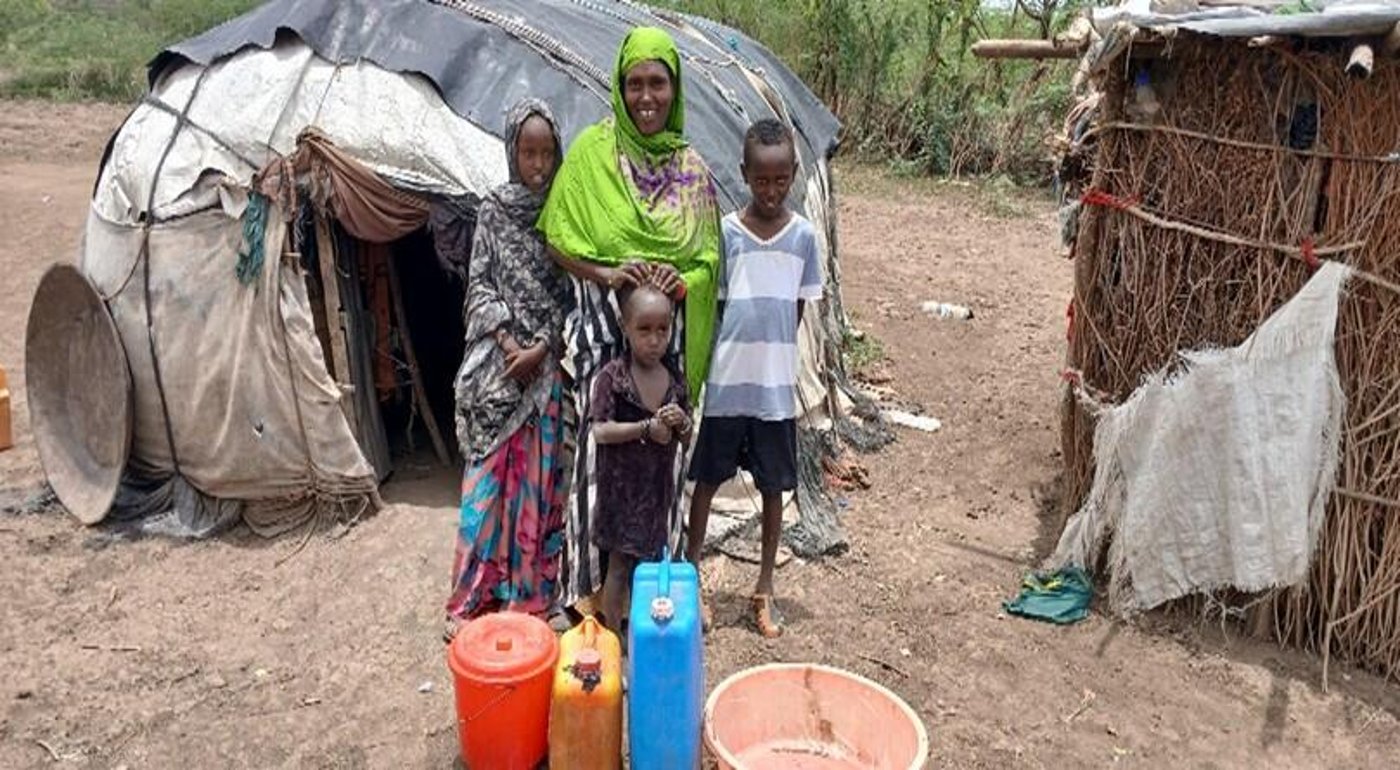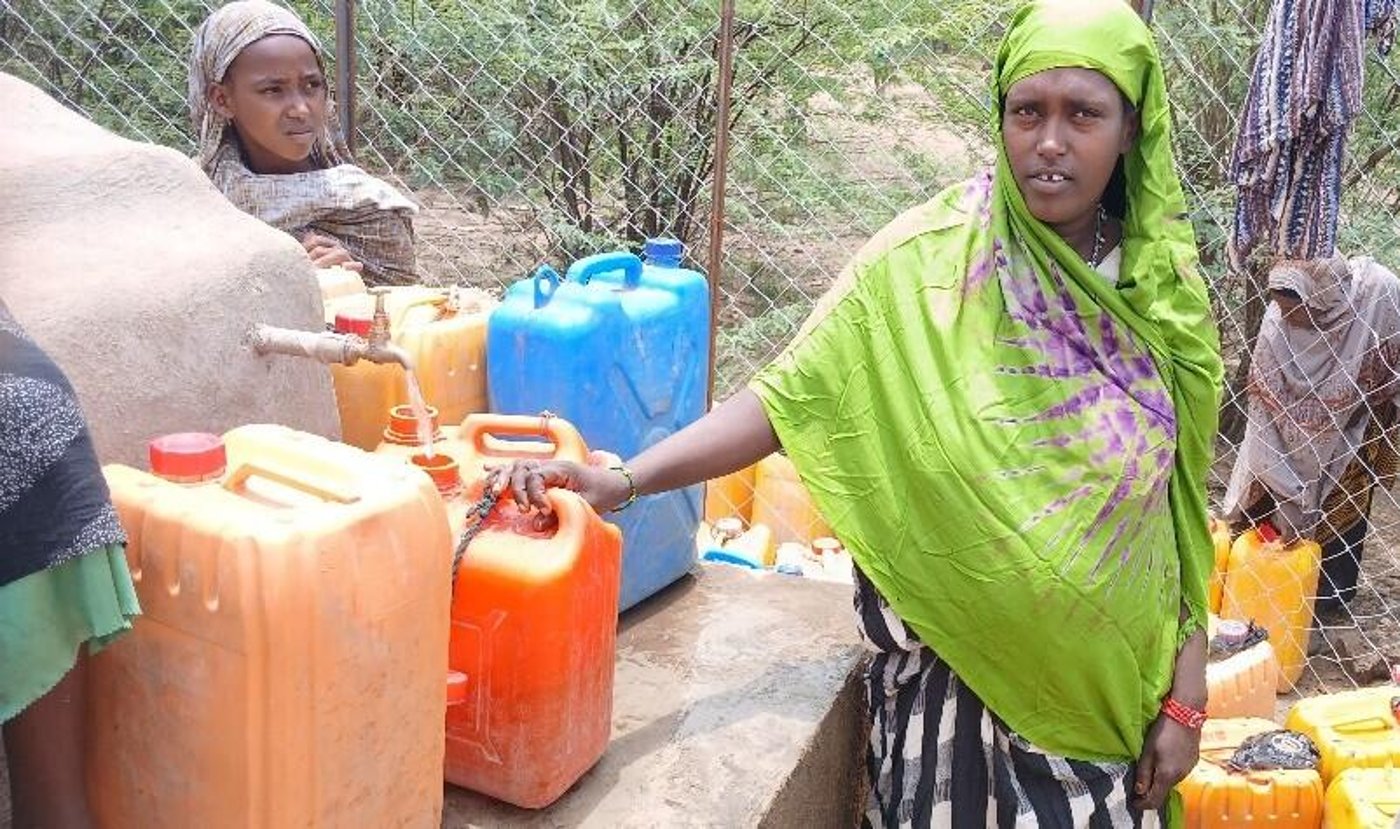A daily struggle for water
Originally from Bardode, Dayiba was displaced by ethnic conflict and prolonged drought. She fled with her family and spent several years living in a makeshift shelter in Khato Kebele. Life there was a daily struggle for survival. Back home, she had been an agro pastoralist, caring for eight cows and a small plot of farmland. But the conflict and recurring droughts stripped her of both livelihood and livestock. Eventually, her family resettled in Hardin.
“To support my children, I began collecting firewood to sell in the local town,” she says. “It was the only option left.”
Access to clean water was among the biggest challenges. The only borehole in Hardin had dried up nearly a decade ago. Dayiba and her eldest son would walk for three hours to fetch water from an unprotected river.
“The river was far,” she recalls. “I had only three small, five-litre jerrycans. Some days, I couldn’t make the journey. We had nothing, no water, no food.”
In 2024, everything changed.

Clean water powered by the sun
With funding from the Ethiopia Humanitarian Fund (EHF-OCHA), the Norwegian Refugee Council (NRC) launched an integrated water, sanitation, hygiene (WASH) and livelihoods intervention in Mieso Woreda. The project aimed to close critical infrastructure gaps while supporting community resilience.
Working with the regional water and irrigation bureaus, NRC brought a newly drilled borehole into use by installing a solar-powered pump. A one-kilometre pipeline now connects the borehole to a renovated 50-cubic-metre water tank. New water distribution points were built to serve the broader community, and families received essential items like buckets and jerrycans.
For Dayiba, the transformation has been life changing.
“I now have access to clean water just a few minutes from home,” she says. “I received enough jerrycans to collect and store it properly. We are no longer burdened by walking long distances or worrying about where the next bucket will come from.”
Today, along with 7,321 other residents in Hardin, Dayiba fills her jerrycans from a working tap. With fewer hours spent fetching water, she can focus on caring for her children, ensuring they attend school, and rebuilding her life with dignity.
Sign up to our newsletter to read more stories from around the world.


